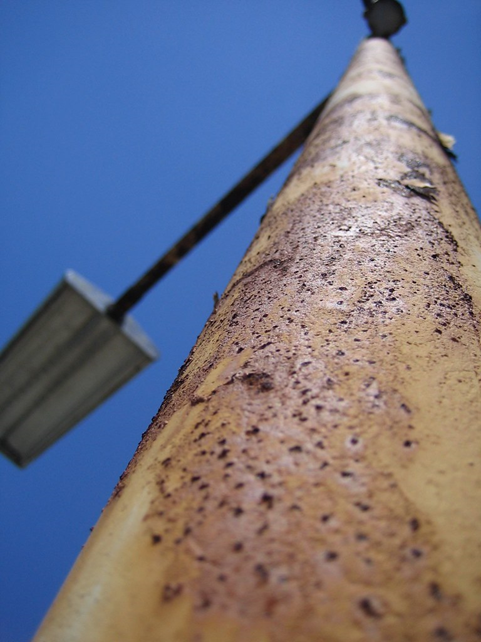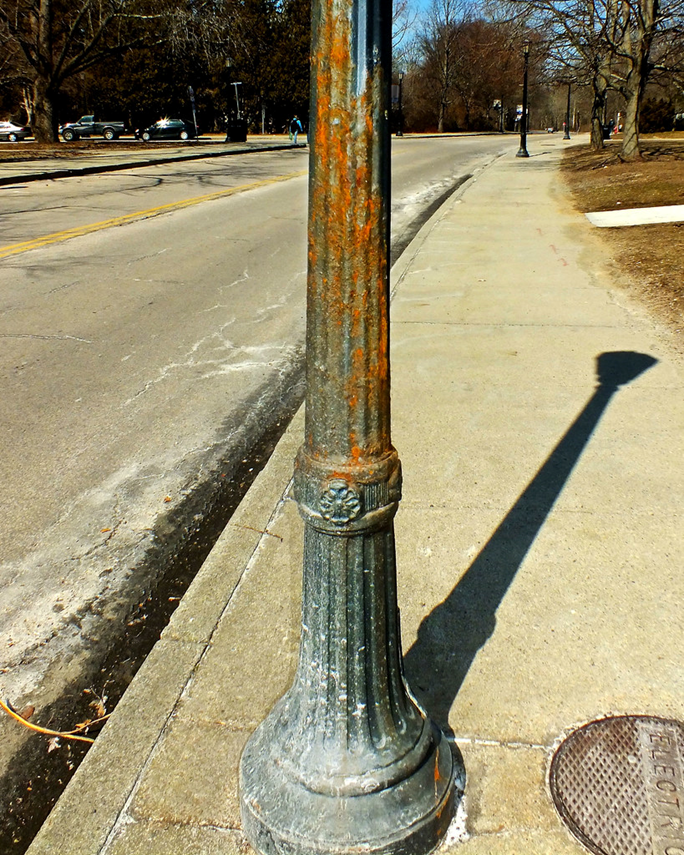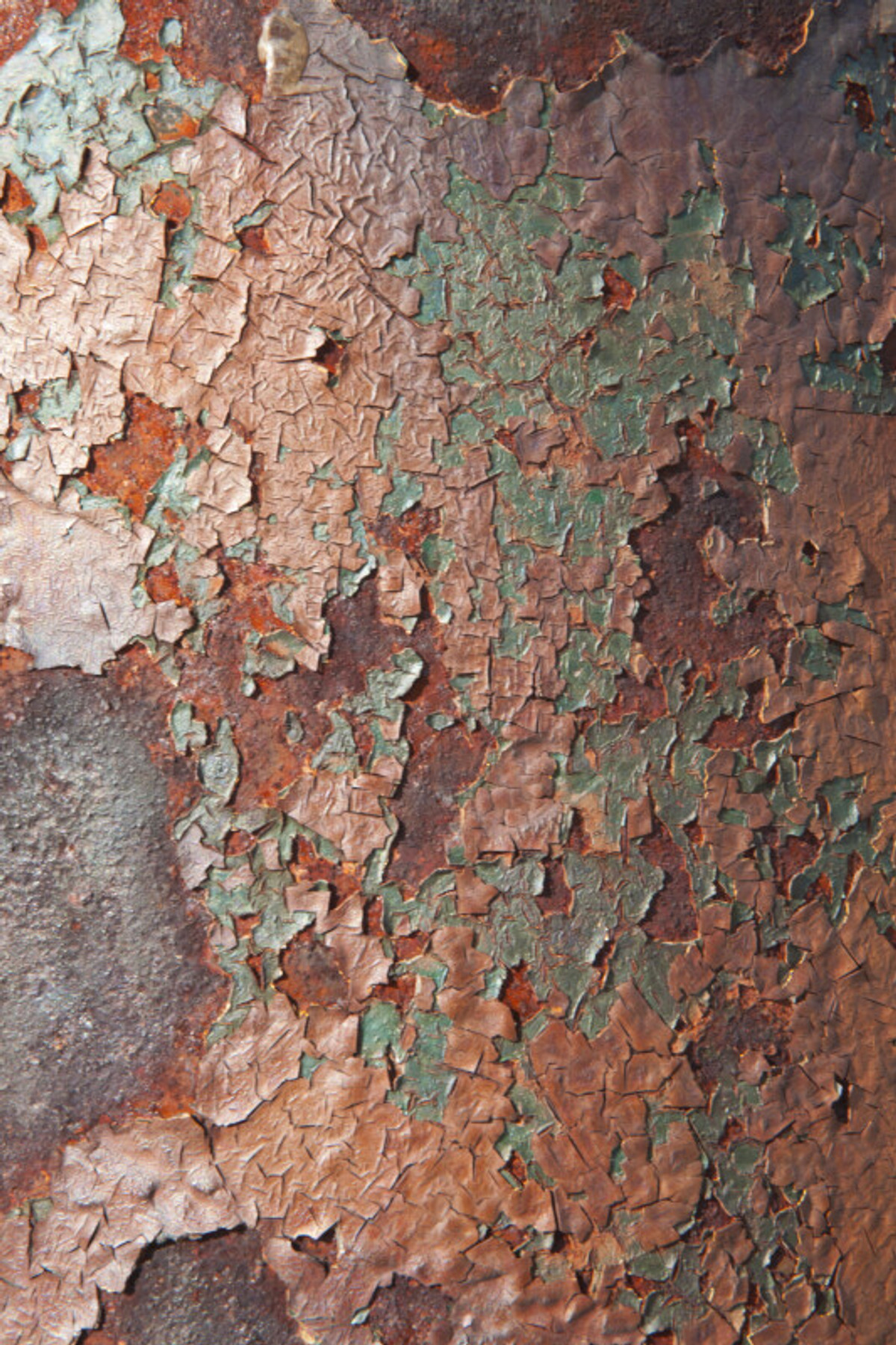
Nothing lasts forever, and this includes light poles. Because they are installed outdoors, light poles experience constant exposure to the elements along with a host of other things. This exposure can cause corrosion which weakens their structural integrity.
For any light pole project, it’s important to consider the ways in which the poles can resist corrosion, especially in certain environments that can accelerate the corrosion process. Not doing so can cause serious reliability and safety issues in the future.
In this article, we will explore the factors that contribute to corrosion and how to prevent it. We will also feature the wide range of LightMart's corrosion-resistant light poles in the process.
The Science of Corrosion
Corrosion is a naturally occurring, diffusion-controlled process that occurs on exposed surfaces. It transforms a processed metal into a more chemically stable oxide. It is defined as the gradual deterioration of a substance (usually metal) by chemical or electrochemical reactions with its environment.
Most types of metals are oxidized easily. They tend to lose electrons to oxygen that is present in the air or water. As oxygen gains electrons (is reduced), it forms an oxide with the metal.
The most common types of corrosion are a result of electrochemical reactions. General corrosion happens when most (or all) of the atoms on the same metal surface are oxidized. This damages the entire surface. Corrosion can also be locally concentrated causing a pit or crack to form.
Common factors that contribute to corrosion include moisture, salt, and air pollutants.
It’s important to note that rust is a type of corrosion and corrosion is a type of oxidation. All rust is corrosion, while not all corrosion is rust.
Why Corrosion is a Problem
Corrosion on a light pole will gradually weaken and compromise its structural integrity. It can lead to safety hazards and increased maintenance costs.

This is especially an issue for steel poles. They undergo the most stress near their foundations and bases. For steel and aluminum anchor base poles, the area that is the most susceptible to corrosion is the welded connection where the pole shaft meets the base flange. It is its most important structural element.
Material Matters: The Best Choices for Corrosion Resistance
The three primary materials used in light pole manufacturing are:
- Steel
- Aluminum
- Fiberglass
Because steel is a mixture of iron and carbon, it will rust.
Aluminum doesn't rust, but it does corrode. The oxide coating of aluminum is extremely resistant, and it will renew itself if it’s damaged. This keeps it relatively safe from corrosion. However, some factors can cause the coating to become unstable, which in turn exposes the metal.
Fiberglass composite material is corrosion resistant. It is resistant to a broad range of chemicals and will not rust or corrode like metals.
The Role of Coatings and Treatments
Some protective coatings and treatments can be applied to light poles to add an extra layer of protection against corrosion. They help to extend the lifespan of a light pole by providing corrosion resistance and protecting it from environmental and/or application-related factors. The different types of materials used to manufacture light poles will factor into what types of finishes and coatings you will use.
Powder Coating
Powder coating is a kind of finish where electrically charged particles are baked onto the pole at a high temperature. It is used to create a hard finish that is tougher and longer lasting than conventional paint.
Galvanizing
Galvanizing is the process of dipping a steel pole into a zinc solution. Unlike other types of coatings, this solution coats the pole shaft inside and out.
Additionally, anchor bolts used to secure the pole to its foundation are galvanized to prevent corrosion.
Anodizing
Anodizing is an electrolytic process that gives aluminum poles a protective oxide coating that creates a durable, corrosion-resistant surface.
Special Considerations for Coastal Areas
Light poles installed in coastal areas require special considerations due to the environment. Seawater and hurricanes pose additional concerns that will drastically reduce their lifespan without additional layers of protection.
The salt in seawater is a major corrosion factor. Salt diffuses ions into water because it is an electrolyte. This intensifies the corrosion rate of metal. When combined with ocean air (which also contains salt), it causes steel to corrode 10 times faster than inland air with normal humidity.
Direct Burial Poles and Corrosion
Unlike anchor base poles, which are installed on top of a concrete foundation, direct burial poles are installed in a way that they are partially below grade (underground). This poses certain challenges in relation to corrosion resistance. Like anchor base poles, they are exposed to moisture above ground. However, the section that is below ground is exposed to other things that contribute to corrosion.
The soil surrounding the pole not only contains moisture but can also contain high levels of acidity, chloride, sulfates, and organic content. These elements will accelerate the corrosion process.
The installation process for direct burial poles can also contribute to corrosion if not done properly. Physical damage to the pole will expose bare metal and remove its protective coating.
Direct burial installations are not recommended for steel poles. They will not last long without quickly corroding in this scenario. Fiberglass and aluminum light poles are better able to handle the conditions below ground.
Longevity and Maintenance
The typical lifespan for a light pole will depend on its material. They are as follows:
- Steel: 15-30 years
- Fiberglass: 30-40 years
- Aluminum: 50+ years
Corrosion resistance contributes to the longevity of light poles. A light pole’s resistance to corrosion is determined by its material and the coatings/treatments that are applied to it during the manufacturing process.
After installation, there are ways to maintain light poles to further extend their life.
Why Choose LightMart for Corrosion-Resistant Light Poles?
Expertise in Material Selection
LightMart has many years of experience in selecting the best materials for corrosion resistance, such as fiberglass and specially coated metals.
Quality Assurance and Longevity
LightMart performs rigorous quality checks on our products to ensure they meet or exceed industry standards for corrosion resistance.
LightMart also has quick-ship options for those in need of immediate replacements, as well as top-notch customer service that can guide buyers through the selection process.
Contact us today!
David DeWald is the E-Commerce Marketing Specialist at LightMart. He has been working in the industrial and commercial lighting industry since 2013 and is based in the greater Chicago area. David specializes in digital product management, web content writing, and product marketing. He regularly publishes lighting industry-related articles on the LightMart blog. You can visit his LinkedIn profile here.
